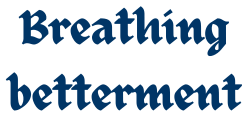In today’s fast-paced and often stressful work environment, it’s no surprise that mindfulness practices are gaining traction. Mindfulness is the act of focusing one’s attention on the present moment and accepting thoughts, feelings, and bodily sensations without judgment. When practiced regularly, mindfulness can help improve focus, reduce stress, and increase productivity.
Starting your day with a mindful morning routine can set the tone for improved focus and productivity throughout the day. Begin by setting aside time for yourself, even if it’s just 15 minutes. You can use this time to practice meditation or deep breathing exercises. Meditation helps to calm the mind and improve focus, while deep breathing activates the body’s relaxation response, reducing stress and improving overall well-being.
In addition to a mindful morning routine, incorporating short breaks throughout your day can provide a much-needed recharge. During these breaks, consider practicing mindful walking. This involves focusing your attention on the sensation of walking: the movement of your feet, the sound of your footsteps, and the feeling of the ground beneath you. Mindful walking can be done anywhere and helps to ground you in the present moment, providing a sense of calm and clarity.
Another essential aspect of mindfulness at work is mindful communication. This involves actively listening to colleagues and clients without judgment and responding in a thoughtful and considerate manner. When differences of opinion arise, as they often do in the workplace, approach these situations with curiosity and empathy. Try to understand the perspective of others, and communicate your own thoughts and feelings clearly and respectfully.
To further enhance your mindfulness practice at work, set boundaries and prioritize self-care. Establish clear boundaries between work and personal time, and stick to them. This may involve setting specific times to check emails or turning off work notifications after a certain hour. Prioritizing self-care is also key. This could mean scheduling regular exercise or ensuring you take a proper lunch break to recharge and refocus.
One effective way to improve mindfulness at work is by creating dedicated focus zones. These are areas in your workplace specifically designated for focused work. In these zones, minimize distractions by establishing rules, such as no phone calls or non-urgent interruptions during certain hours. This allows employees to enter a state of “deep work,” improving productivity and the quality of their output.
Additionally, mindfulness can be enhanced through the use of focus-enhancing tools and technologies. For example, noise-canceling headphones can help block out distractions and improve concentration. Or, time management apps can be used to structure your day, ensuring you stay on task and don’t spend too much time on any one activity.
To keep yourself accountable and motivated, find a mindfulness buddy or join a mindfulness community. Having a buddy or community provides support and encouragement, especially on days when you’re feeling unmotivated. It also creates a sense of commitment, as you are more likely to stick to your mindfulness practices knowing that others are relying on you.
If you’re new to mindfulness or seeking additional guidance, consider enrolling in a course or workshop. These programs can provide you with structured lessons and a community of like-minded individuals to support your journey. Many courses are available online, making it convenient to learn from the comfort of your own home or during your lunch break.
One of the most important aspects of mindfulness is self-reflection. Set aside time regularly to reflect on your progress and how mindfulness practices have impacted your work and overall well-being. You might keep a journal to jot down your thoughts and feelings, tracking your improvements and the areas you want to focus on. Self-reflection allows you to identify what works best for you, so you can tailor your mindfulness practices accordingly.
Mindfulness apps are also a great resource to support your journey. These apps offer guided meditations, breathing exercises, and sleep stories, providing convenient access to mindfulness tools whenever and wherever you need them. Many apps also offer customizable features, allowing you to create a personalized mindfulness plan that aligns with your goals and preferences.
For those who prefer in-person guidance, consider seeking out a local mindfulness teacher or coach. They can provide personalized advice and support tailored to your specific needs and challenges. Often, having that human connection and accountability can make a significant difference in maintaining a consistent mindfulness practice.
Remember, mindfulness is a lifelong skill, and it’s okay to start small and gradually incorporate practices into your daily routine. Be patient and compassionate with yourself, and trust that the benefits will unfold over time. The most important thing is to maintain a consistent practice and approach each moment with curiosity and non-judgment.
By implementing these mindfulness strategies into your work life, you’ll be well on your way to improved focus and productivity. Staying present and mindful throughout your day will help you make the most of your time and enhance your overall well-being. So, take that first step, whether it’s setting aside 15 minutes for meditation or taking a mindful walk during your break, and begin to experience the transformative power of mindfulness at work.
If you have any questions Contact Us Here.

